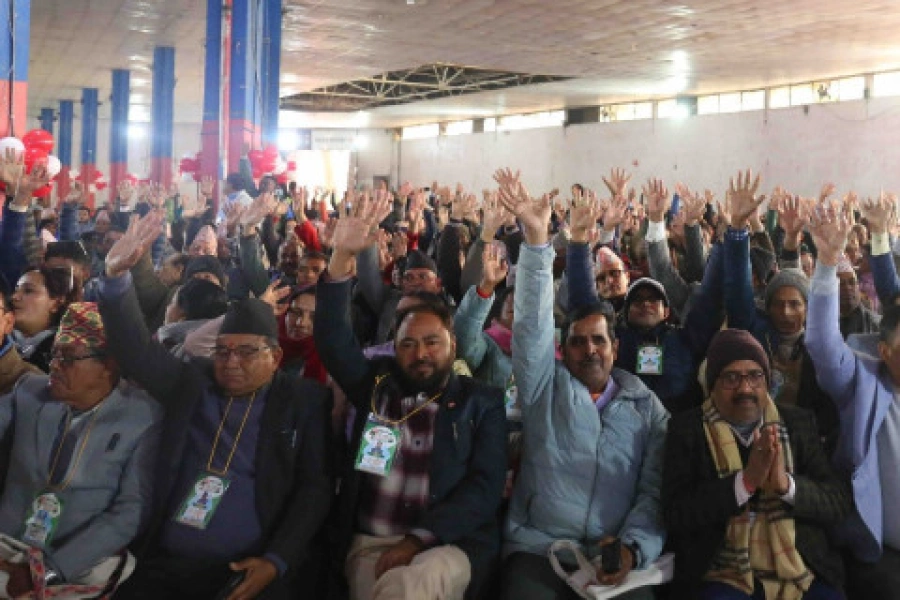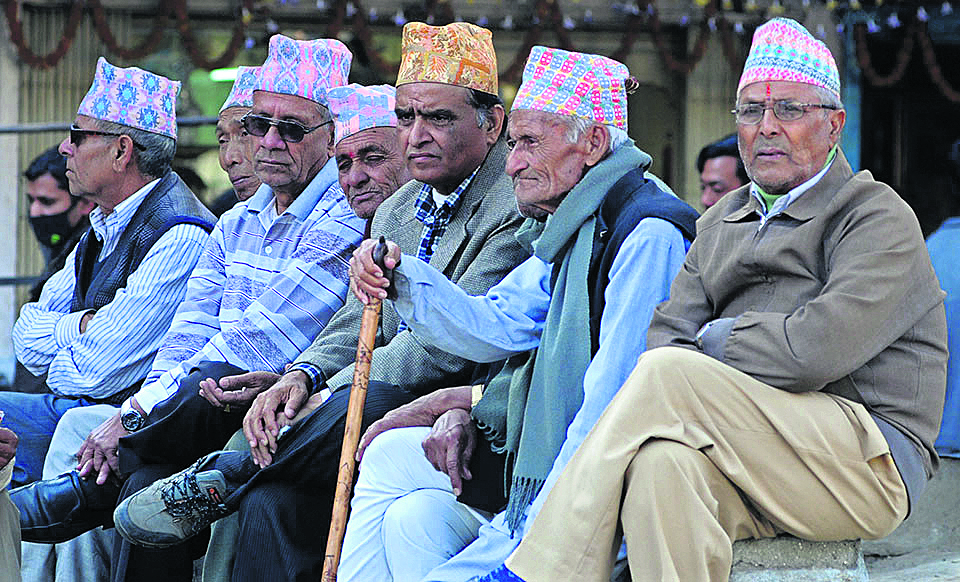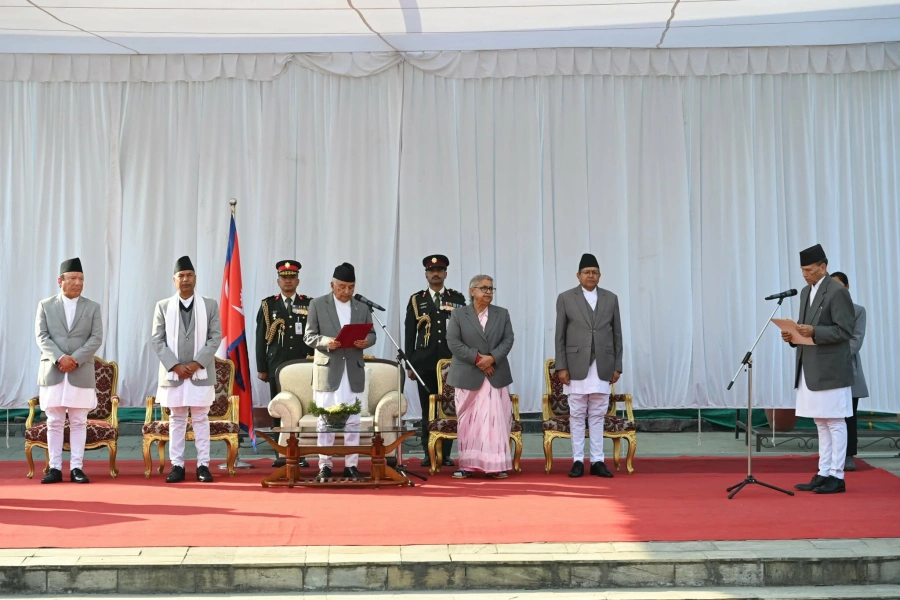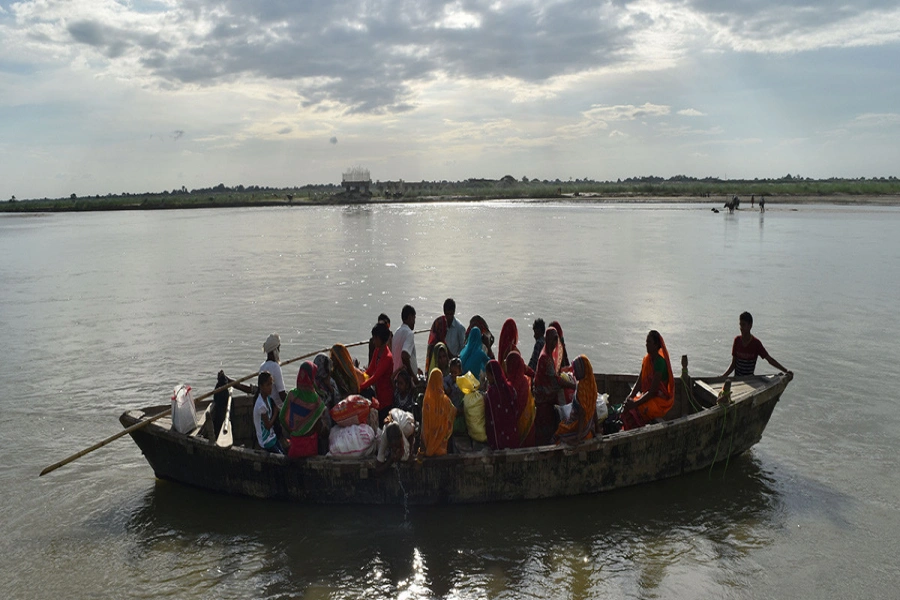In Nepali society, reverence for elders is interwoven into the fabric of daily life. Rituals, symbolic gestures, and respectful language outwardly signal a culture that honours its seniors. Yet, beneath this surface-level respect, many traditional practices silently contribute to the marginalization and abuse of elderly people—often unquestioned and unchallenged.
The Unseen Margins: How “Normal” Traditions Can Cause Harm
While elders are publicly respected, many are expected to be passive and dependent, sidelined from family decisions and encouraged to “give space” to younger generations. This not only limits their autonomy but also silences their voices. Emotional neglect—such as not speaking to elders, excluding them from social gatherings, or disregarding their well-being—is rarely acknowledged as harmful, yet it causes deep loneliness and distress.
Suffering among elders in Nepali society is often spiritualised and attributed to karma or fate, a belief that their hardships stem from past deeds or divine will. This worldview, rooted in religious and cultural traditions, frequently discourages families from actively addressing senior citizens’ real, immediate needs. In a rural area, when a distant relative of mine suffered from a chronic illness, family members often resigned themselves to the belief that this suffering was a form of spiritual punishment or a test of endurance, rather than seeking appropriate medical treatment or emotional support. Similarly, when an elder experiences loneliness or neglect, it is frequently dismissed as their destined fate, instead of being recognized as a serious issue that requires timely intervention.
This spiritualization of suffering is closely linked to ageist attitudes that minimize the value and voice of the elderly people. I’ve seen when an elder in a family tries to share advice about important family or community matters, younger members often just brush it off with comments like, “What do you know now?” or “Let the young ones handle it.” This kind of response shuts down their voice and makes them feel invisible. I remember my grandmother trying to suggest a solution during a family disagreement, only to be ignored because “she’s old and out of touch.” Similarly, when elders talk about their worries—whether it’s about their health or money—their concerns are often dismissed as just old people’s complaints, with remarks like “Don’t bother us with your problems; you’re old now.” These attitudes not only hurt their feelings but also make them feel like they don’t matter anymore. These attitudes not only diminish the dignity of elderly people but also contribute to their social isolation and emotional neglect. By framing their suffering as inevitable or deserved, families and communities miss critical opportunities to provide care, companionship, and respect that can significantly improve elders’ quality of life. To foster a truly respectful society, it is essential to challenge these beliefs and recognize that elders’ needs—physical, emotional, and social—deserve attention and compassionate action.
NC on edge as leaders race for consensus on policy and leadersh...

Elderly women, especially widows, face even greater challenges. Excluded from rituals and social life under the guise of tradition, they experience gender discrimination that is rarely questioned. Financial control often shifts to adult children, reducing elders’ independence and increasing their vulnerability. When abuse or neglect does occur, it is frequently dismissed as a private family matter—“ghar ko kura”—preventing intervention and justice. Nepali society’s treatment of elders can be better understood through the combined lens of ethics of justice and ethics of care. The ethics of justice reminds us that elderly people have undeniable rights—to autonomy, protection from abuse, and meaningful participation in family and community life. Yet, these rights are often compromised by cultural norms that sideline elders and deny them agency. At the same time, the ethics of care calls attention to the relational and emotional dimensions of elderly people’s respect—emphasizing empathy, attentiveness, and nurturing bonds. When elders’ suffering is dismissed as karma or fate, or when their voices are silenced with ageist remarks, it reflects a breakdown in the care ethic that once formed the foundation of Nepali family life. Addressing marginalization of elderly people requires both enforcing their rights and revitalizing the caring relationships that sustain their dignity and well-being.
In Nepal, caring for older adults has long been guided by cultural values and a strong sense of family responsibility. Traditionally, family members are expected to provide emotional, physical, and financial support to elderly people. This reflects the country’s deep respect for elders and a strong ethic of care. However, modern changes like urbanization and migration have weakened these traditional support systems, making many senior citizens more vulnerable.
At the same time, there is a growing need to ensure justice for elderly people by giving them equal access to healthcare, social security, and legal protection. Nepal must find a balance between the family’s role in caring for elders and the government’s responsibility to support them through laws and services. Promoting dignity, independence, and fairness for elderly people will require joint efforts from families, communities, and the state—preserving cultural values while meeting the needs of today’s society.
The Need for Change: Moving Beyond Symbolic Respect
Protecting elderly people in Nepal requires a fundamental shift in both cultural attitudes and systemic support. First, awareness must be raised to recognize that not all traditions are harmless. Emotional neglect, exclusion, or control—when normalized—are forms of abuse that must be named and addressed.
Families should be educated about the rights of senior citizens and encouraged to include them in conversations, decisions, and social life. At the community level, local governments and social organizations can create safe spaces—such as community centers or legal aid clinics—where elders can share concerns without fear of shame or retaliation.
Financial abuse can be prevented by introducing accessible legal tools such as joint ownership, wills, or power of attorney agreements with safeguards. Laws that protect elders must be better enforced, and helplines or reporting mechanisms should be promoted in both rural and urban areas. The establishment of senior citizen groups can provide companionship and advocacy, creating networks of peer support.
Learning from the World: Global Lessons for Nepal
Elder abuse is a global issue. Like Nepal, many low- and middle-income countries face underreporting, cultural stigma, and limited resources. India and Bangladesh, for example, show similar patterns of neglect and psychological abuse, often compounded by poverty and social isolation.
However, some countries offer models worth adapting. Japan’s elder abuse prevention system includes mandatory reporting laws, community-based support centers, and caregiver training—emphasizing early detection and coordinated services. The United Kingdom’s Care Act 2014 empowers social workers to intervene, supported by public awareness campaigns and helplines that encourage reporting and reduce stigma.
For Nepal, community-based awareness programmes tailored to local contexts could reduce stigma and promote reporting. Establishing dedicated elder support centres or helplines, particularly in rural areas, would provide accessible assistance. Training family caregivers and healthcare workers on elder rights and abuse recognition could enhance early intervention. Strengthening legal frameworks and ensuring enforcement would offer better protection and justice.
Honouring Elders with Action, Not Just Ritual
To truly respect and support our elders, Nepali society must go beyond just symbolic actions—like bowing down with respect or speaking politely—and think about the deeper problems in our culture that are often seen as normal. These include treating older people as a burden when they can no longer work, not including them in family decisions, or expecting them to stay quiet even when they are being mistreated. Real respect means more than just words. It means including older people in important family and community matters, making sure they are treated with dignity, and giving them chances to take part in social, cultural, or even small economic activities. This could be through senior groups, community events, or programs that value their knowledge and experience.Together, with awareness, compassion, and collective effort, we can create a future where ageing is not feared but embraced as a stage of life filled with purpose, respect, and opportunity. Let this be a call to action—for families, communities, and policymakers—to ensure that every older adult in Nepal lives not only longer but better, with the care and dignity they truly deserve.
(The author is a lecturer at Bhaktapur Multiple Campus)





































